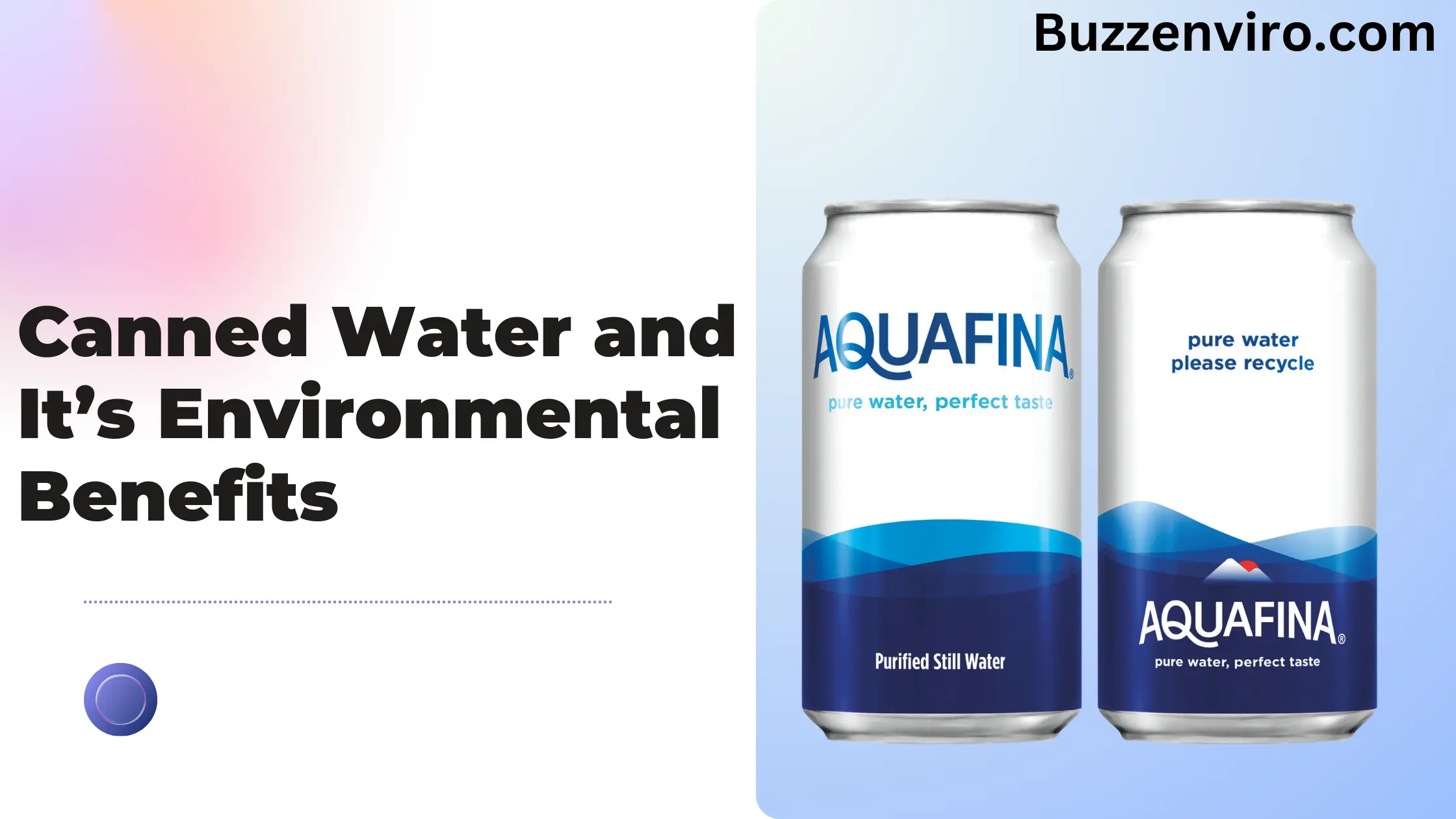In a world where environmental concerns are at the forefront of consumer choices, canned water is emerging as a sustainable alternative to traditional plastic bottled water. While the concept of canned beverages is not new, the rise of canned water has sparked significant interest, particularly among eco-conscious consumers. If you’re curious about this eco-friendly trend, you’ve come to the right place. In this blog, we’ll cover everything you need to know about canned water, from its production process to its impressive environmental benefits.
What is Canned Water?
Canned water is simply water packaged in aluminum cans, as opposed to the traditional plastic bottles or glass containers that are more commonly seen on supermarket shelves. The idea is straightforward—packaging water in an aluminum can instead of a plastic bottle or glass reduces waste and makes recycling easier. But how exactly does this change the game for sustainability?
The Environmental Impact of Plastic Bottles

To understand why canned water is such a game-changer, we need to first examine the environmental challenges posed by plastic water bottles.
1. Plastic Pollution: Every year, an estimated 8 million tons of plastic waste end up in the oceans, with plastic bottles being a significant contributor. Most plastic water bottles are designed for single-use and are made from polyethylene terephthalate (PET), a plastic that takes hundreds of years to decompose.
2. Recycling Issues: While PET plastic is recyclable, only a small fraction actually gets recycled. The rest ends up in landfills, where it can leach chemicals into the soil and water, or worse, in our oceans. In fact, only about 9% of the plastic ever produced has been successfully recycled.
3. Carbon Footprint: Producing plastic bottles, especially when made from virgin materials, involves significant energy consumption. When combined with the transportation emissions from global shipping, the carbon footprint of plastic bottles is substantial.
How Canned Water Helps the Environment?
Now, let’s explore why canned water is often hailed as a more sustainable choice. Here are the key environmental benefits of switching from plastic bottles to aluminum cans for water:
1. Infinitely Recyclable Aluminum
Aluminum is one of the most recyclable materials on Earth. Unlike plastic, which degrades in quality with each recycling cycle, aluminum can be recycled infinitely without losing its integrity. In fact, recycling aluminum uses 95% less energy compared to producing new aluminum from raw materials. This means that the energy required for the entire life cycle of an aluminum can is much lower, reducing its carbon footprint significantly.
Most canned water brands utilize recycled aluminum in their products, making the cans even more environmentally friendly. In comparison, most plastic bottles are made from single-use materials that often don’t get recycled effectively.
2. Reduced Plastic Waste
By choosing aluminum cans over plastic bottles, the overall amount of single-use plastic waste decreases. Aluminum cans are durable, lightweight, and can be easily flattened for efficient transport. This helps reduce the amount of plastic that ends up in landfills or, worse, the oceans. As consumers shift toward canned water, they contribute to reducing plastic pollution on a larger scale.
3. Lower Carbon Footprint
Although producing aluminum cans does require energy, the overall environmental impact is lower when compared to the full life cycle of plastic bottles. The key reason is recycling. Since aluminum is infinitely recyclable, its production becomes increasingly energy-efficient over time, especially when compared to plastic, which is not as easily recycled and often results in more waste.
Furthermore, many canned water companies focus on carbon offset programs and source their aluminum from facilities that use renewable energy, further reducing the carbon footprint of their production processes. Transportation emissions are also lower for aluminum cans due to their lightweight nature, making them more energy-efficient to ship.
4. Reduced Use of Plastic Bottles in the Ocean
One of the most significant environmental problems today is the enormous amount of plastic waste that ends up in the oceans. Plastic bottles are one of the most commonly found items in ocean trash. Canned water offers a solution by moving away from plastic and providing a product that is 100% recyclable and doesn’t pose a long-term pollution threat to marine life. While not completely free of environmental impact, switching to canned water is a step in the right direction to help prevent further plastic waste from polluting our oceans.
The Market for Canned Water
Canned water is no longer just a novelty. Major companies and startups alike are investing in this growing market. In 2022, the global canned water market was valued at over $10 billion and is projected to grow significantly in the coming years. This surge is driven by:
1. Consumer Awareness: As more people understand the environmental impact of plastic, they’re making conscious choices to reduce their footprint.
2. Corporate Responsibility: Companies are adopting sustainable practices to meet consumer demand and align with global environmental goals.
3. Innovative Branding: Canned water brands are using bold, eye-catching designs and marketing campaigns to make their products stand out.
Popular Canned Water Brands Leading the Charge
Several companies have embraced the shift toward canned water as a more sustainable alternative to plastic bottles. Here are a few brands that are leading the charge:
1. Liquid Death: Perhaps the most famous canned water brand, Liquid Death has built a reputation not only for its innovative branding but also for its commitment to eliminating plastic waste. Their catchy slogan, “Murder Your Thirst,” combined with their eco-friendly messaging, has resonated with environmentally-conscious consumers.
2. Open Water: Known for its minimalist branding, Open Water offers water packaged in 100% recyclable aluminum cans. Their mission is to help eliminate plastic waste while providing high-quality hydration options.
3. PATH Water: PATH Water is another company that focuses on reducing single-use plastic waste. They offer water in reusable aluminum bottles, but their canned water options are equally eco-friendly and recyclable.
Each of these brands prioritizes sustainability in its production processes and packaging, aligning their business models with growing consumer demand for environmentally-friendly products.
Making the Switch to Canned Water
Canned water offers a powerful solution to the growing problem of plastic pollution. With its infinitely recyclable aluminum packaging, lower carbon footprint, and reduced plastic waste, it’s clear why more and more consumers are choosing canned water over plastic bottles. Not only does it provide clean, refreshing hydration, but it also supports a more sustainable future for our planet.
So, the next time you’re in the store or browsing online for your hydration needs, consider reaching for a can of water. By doing so, you’re not just staying hydrated; you’re also helping the environment. Every small change counts, and canned water is a simple way to make a big difference.
For more information about how to reduce plastic waste and make sustainable choices, check out this guide on reducing your plastic footprint.
